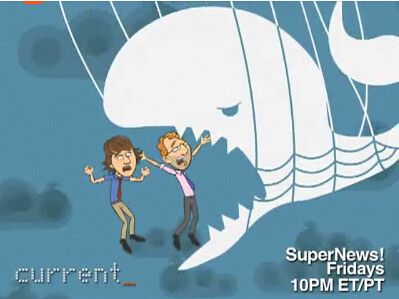
Twouble with Twitters
You can have a lengthy conversation without sharing much (this would pretty much describe the relationship I have with most of my extended family). You can also share a great deal without having much of a conversation (this pretty much describes Twitter).
Yesterday I shared a link - okay yes I actually share 10-15 links a day - but there was one in particular that raised mixed reactions.
The always resourceful Marshal Kirkpatrick wrote a post over at Read/Write Web, How to: Follow Hundreds of Tech Analysts on Twitter With 3 Clicks and then wrote about it on his personal blog, which was the link I shared.
How to: Follow 724 Tech Analysts on Twitter With 3 Clicks http://ff.im/-8mMVz
Doesn’t exactly strike you as a a controversial link does it? But by sharing this post I was accused of being a social media Kool-Aid drinker and then praised by another for sharing such a great resource.
Both people I know and consider friends. Why the drastically different reactions?
The first saw the need to follow 724 analysts as pointless (the point of the resource is that you can follow just the ones you choose). The latter saw the resource as a gold mine.
The real difference is how different people use Twitter.
I take criticism and feedback to heart every time I receive it. I don’t always change the way I do things but I believe you ignore criticism to your own detriment.
I recently mentioned that more than a few people have noticed that my twitter conversations have dropped off since taking the new job. As my friend Chris Blanchard has pointed out to me after moving to Seattle:
There are a number of industry analysts and professionals (like yourself) that are now using Twitter as their real time RSS reader, and back channel communications tool. Two huge ironies emerge here though. The first is that these media professionals as they are advising clients about the use of new media tools, are actually using new media as an old media tool. That is, there is no communication going on, just broadcasting. Using twitter to send links is no different than advertising on TV or radio, especially when the goal is to build credibility among the community.
Is sharing links pointless? Is it intrusive? I totally get his point. I don’t “talk” on Twitter as frequently as I used to.
I use Twitter as a way to bridge the gaps to where other conversations are happening. 140 characters isn’t much of a conversation. Blogs and comments provide deeper engagements while Twitter allows more frequent engagements.
I have always shared more links than conversations on Twitter. And I have always shared what I am doing/thinking/reading on Twitter. I spend on average 12 hours a day doing nothing but social media. Because of that schedule you’ve seen my link sharing stay the same and my conversations drop.
There’s much less small talk and much more “work”. I make an honest effort to be very thoughtful about what I share. I try real hard not to share the same crap that everyone else is sharing. I have spent a lot of effort refining my sources to weed out all the “echo chamber” noise. And plenty of people seem to like this.
But it’s not enough for some people. I can’t have more frequent conversations. The only other option is to share less. But that doesn’t seem right.
What do you think is the right approach? (He asks knowing that there is no “right” approach.)
Related articles by Zemanta
- Sharing Means Caring, One Link At A Time (blonde2dot0.com)
- IBM develops “automatic blogging during media viewing” patent (blogherald.com)
- Write Great Content. Fragment. Distribute Everywhere. (newcommbiz.com)
- What Comes Next? Part 2: The Suckage! (newcommbiz.com)
- The New Math is Twitter (tacanderson.com)